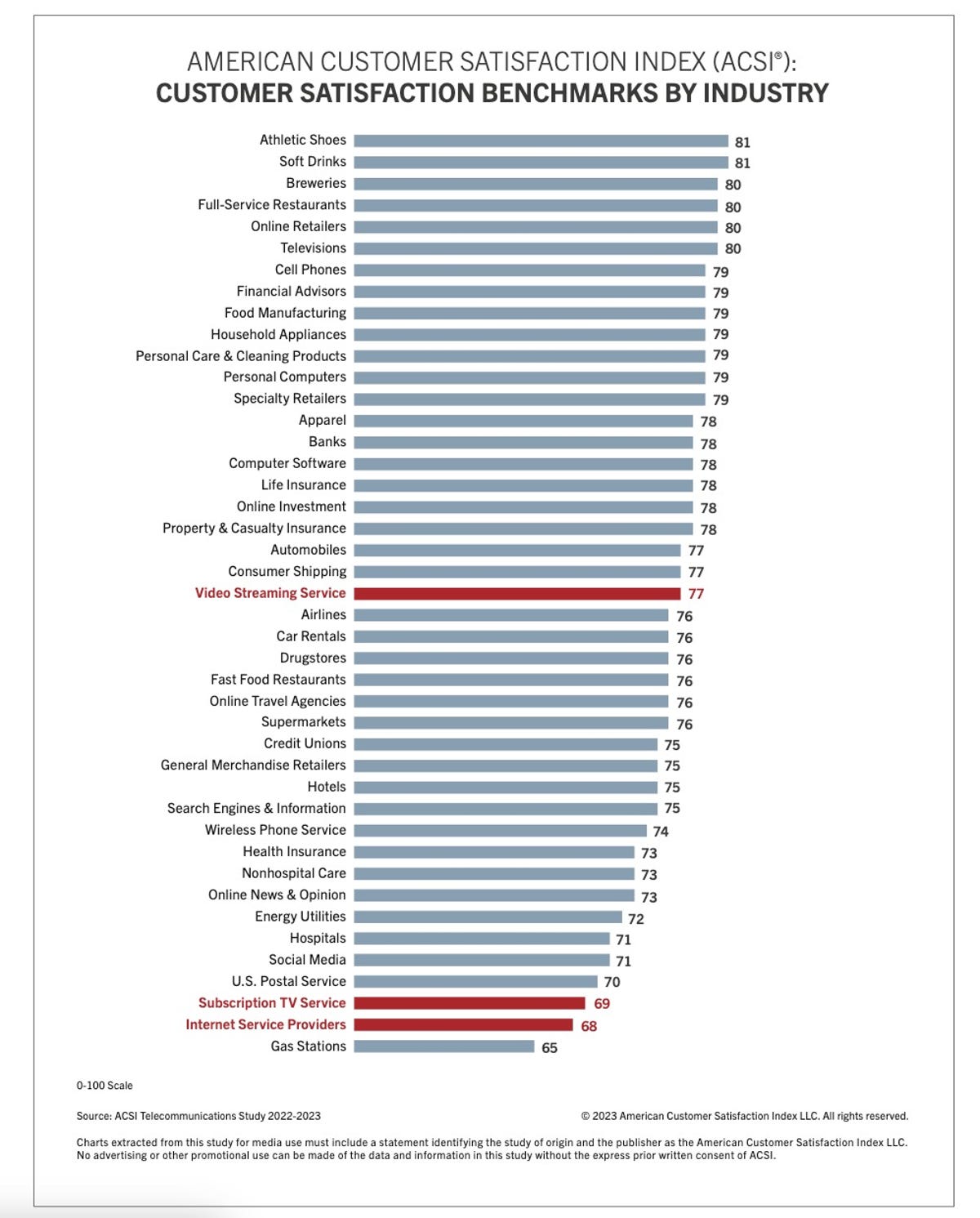The American Customer Satisfaction Index released its annual survey, based on over 22,000 customer interviews, revealing how we really feel about our internet service providers — ISPs scored a 68 rating on a zero to 100 scale, which isn’t all that exciting. If you got a 68 on your math test, you’d be looking at a D+, which wouldn’t exactly get you a spot on Mom’s refrigerator. But that’s before you realize it’s 6% better than 2022 and the highest score the industry has earned in over six years.
So, things are looking up, kind of. The ACSI’s Telecommunications Study for 2022-2023 shows that the numbers for ISPs are trending up for the first time since 2020. The not-so-good news? ISPs are still hovering near the bottom among all US industries. They managed to do worse than the US Postal Service, social media companies and cable TV. At least this time, internet providers did better than gas stations. I guess that’s progress.
Also of note, the ACSI numbers, for the first time, distinguished between fiber providers and non-fiber providers. Fiber ISPs scored a more impressive 75 rating, while non-fiber providers notched a 66-point score, which was still two points above last year’s numbers.
The ISP with the highest individual score was AT&T Fiber, which earned an 80. That helped it leapfrog Verizon Fios, which increased year over year from 72 to 75 points but found itself in fourth place with the new bifurcated lists. CenturyLink and Google Fiber took second and third place in the fiber internet category, respectively.
Americans are decidedly more pleased with fiber internet service than other internet connection modes.
The stronger showing by fiber internet isn’t a surprise. Among all the internet connection types, CNET deemed it the best for its superior speeds (several national ISPs now boast multi-gigabit plans, and a Chattanooga, Tennessee, provider offers a whopping 25Gbps tier), greater reliability (fewer impacts during peak usage times) and upload speeds that are nearly as fast as the download speeds. That’s especially important for folks working from home and needing to do lots of videoconferencing and file uploading.
On the face of things, fiber does tend to be more expensive than cable internet. Some cable ISPs have starting prices of around $25 to $30 per month, whereas many fiber providers start at $50. However, the speeds you get with fiber offset those costs, and consumers will often find that the cost per megabit is cheaper with fiber.
Over on the ACSI’s non-fiber chart, T-Mobile Home Internet
, which debuted in second place on the combined chart last year, topped the list with a 73 rating, up two points from last year’s impressive showing. The 5G fixed wireless provider was also well above the 66 points scored on average for non-fiber internet providers.



